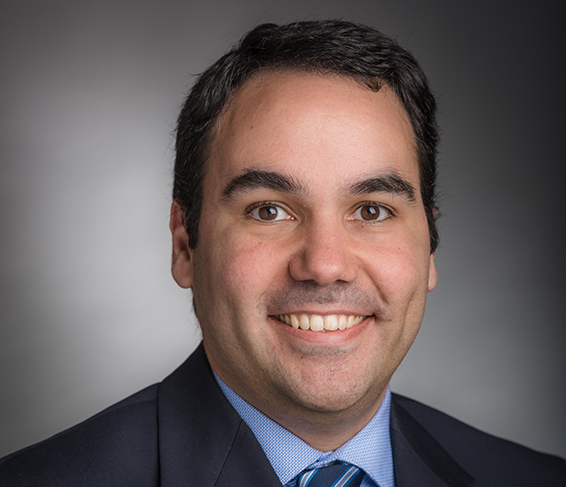Key Takeaways:
- Metastatic breast cancer is not curable, but it is treatable. Many patients with metastatic disease can live well for years.
- Each person’s prognosis is different and will depend on a variety of factors.
- Ongoing research is underway to identify new treatments. CDK4/6 inhibitors, for example, have shown encouraging results for treating certain subtypes of metastatic breast cancer.
A metastatic breast cancer diagnosis can be a stressful, life-changing event. While metastatic breast cancer it is not curable, it is treatable. Today, with the help of new treatments including biologic targeted therapies and novel drug combinations, many patients with metastatic disease can live well for years.
Metastatic breast cancer means that the cancer has spread outside of the breast and nearby lymph nodes to other parts of the body. Approximately 5-10 percent of patients with breast cancer are initially diagnosed with metastatic disease, but this can also occur when cancer returns after previous treatment.
Determining my prognosis
There is no universal prognosis for metastatic breast cancer, as outcomes vary tremendously based on a variety of factors. Every patient is unique; so too is each patient’s disease and subsequent outcome.
One thing the oncologist will want to determine is your performance status, or how well you feel and can perform daily activities. The test encompasses everything from basic actions — like eating and bathing — to more complex ones, including job performance.
Another important factor in your treatment and care is the molecular makeup of the cancer. Breast cancer generally falls in one of three subtypes, depending on the presence or absence of specific receptors in the cancer:
- Hormone receptor-positive breast cancer, which indicates the cancer is fueled by the hormones estrogen or progesterone. If either is identified, hormonal therapy may be an effective option.
- HER2-postive breast cancer, which signifies the presence of the HER2 (human epidermal growth factor receptor 2) receptor. Patients with HER2-positive breast cancer may benefit from receiving a targeted monoclonal antibody designed to attack the HER2 receptor.
- Triple negative breast cancer is a subtype of breast cancer that does not contain estrogen, progesterone, or the HER2 receptors. While there are many treatment options available for patients with triple-negative breast cancer, these patients will not benefit from hormonal therapy or medicine that targets HER2 protein receptors.
Generally, other factors that will help determine your treatment and prognosis include the degree of involvement in the body (the extent of the cancer and where it has spread), the type and number of treatments you’ve already undergone, your exercise habits, and the time that has passed from initial breast cancer diagnosis to the development of metastases.
Treatment options
Patients with metastatic breast cancer can still benefit from effective treatment options. In fact, many patients can live well and feel well for a long time.
“Thanks to advancements in treatment, many patients report living a relatively normal life while undergoing therapy for their disease,” says Pablo Leone, MD, an oncologist at the Breast Oncology Program at the Susan F. Smith Center for Women’s Cancers at Dana-Farber/Brigham and Women’s Cancer Center.
The goal of treatment is two-fold: to help you live as long as possible and improve symptoms caused by the disease. Your oncologist should work with you to not only address your disease, but also any accompanying symptoms.
Treatment plans for metastatic breast cancer typically focus on the body’s entire system and can include chemotherapy, hormonal therapy (i.e. letrozole and/or tamoxifen), or targeted treatments such as such as trastuzumab (Herceptin) and pertuzumab (Perjeta).
Surgery is usually not recommended for patients with metastatic breast cancer, since it is unlikely the surgeon will be able to remove all of the cancer cells in the body.
Promising research
Current research by scientists at Dana-Farber and elsewhere aims to identify new medications, and combinations of medications, that can effectively treat metastatic breast cancer. One therapy that has shown encouraging results is the use of CDK4/6 inhibitors — a type of targeted therapy — in certain types of breast cancer. Currently, this therapy is being used (typically in combination with hormonal therapy) to treat hormone receptor-positive, HER2-negative metastatic breast cancer.
There are also many ongoing clinical trials available to metastatic breast cancer patients, several of which are options for patients at Dana-Farber/Brigham and Women’s Cancer Center. If you’d like to learn more about clinical trials, be sure to speak with your oncologist.
Additional resources
For reliable information regarding treatment and care for metastatic breast cancer, talk to your care team. They will be able to guide you through your journey and connect you with the resources you need. It’s important to remember that everyone’s situation is unique and what you read online might not pertain to your diagnosis.
To learn more about metastatic breast cancer, including the latest research, be sure to consult one of the links below.
- The Metastatic Breast Cancer Program, part of the Susan F. Smith Center for Women’s Cancers at Dana-Farber/Brigham and Women’s Cancer Center.
- Cancer.net
- American Society of Clinical Oncology (ASCO)
- National Cancer Institute
About the Medical Reviewer

Dr. Leone received his MD from Universidad del Salvador, Argentina in 2005. He completed his residency in Internal Medicine at University of Miami Jackson Memorial Hospital in 2011, and went on to complete fellowships in Hematology and Medical Oncology at University of Pittsburgh Medical Center in 2014. He was faculty at University of Iowa Hospitals and Clinics from 2014 through 2017. In 2017, he joined the staff of Brigham and Women's Hospital and Dana-Farber, where he is a medical oncologist and clinical investigator in the Breast Oncology Center. His research focuses on brain metastases, male breast cancer and novel therapies in the treatment of breast cancer.

Praying for all those whose families are going through this. I hope they find a treatment to successfully battle this. I lost my mother to this last year when it moved to her brain and lungs.